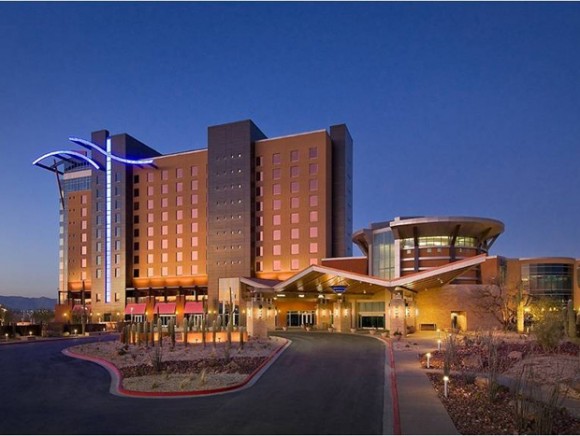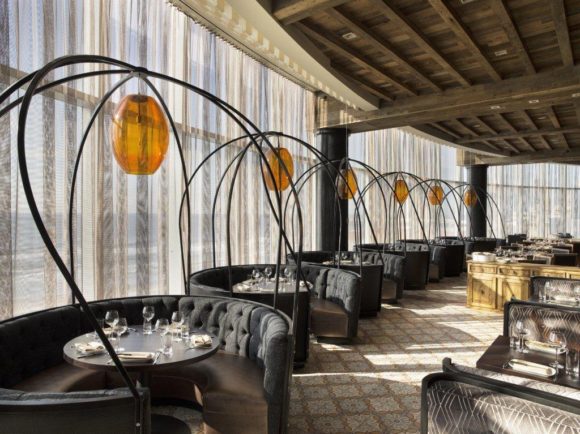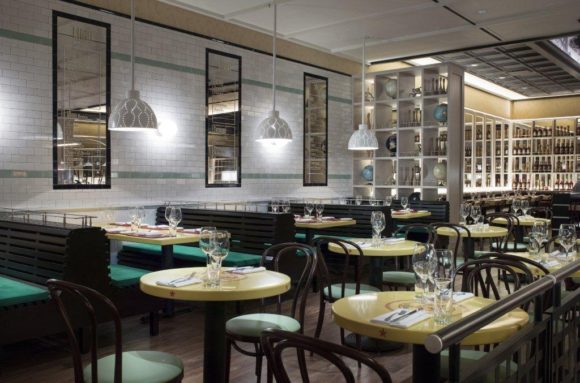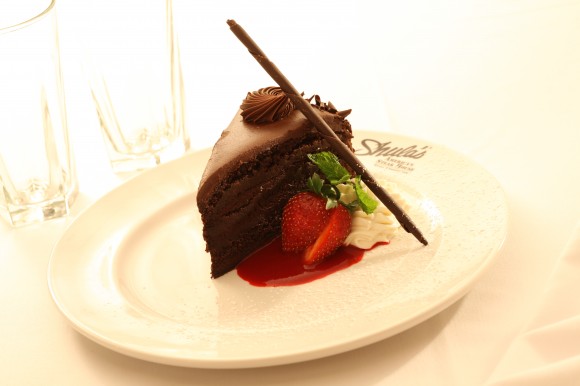By Sharon Harris-Zlotnick

Did you ever watch the people at a casino? Gamblers obviously gamble, but what about the 27% of casino customers who don’t? According to the American Gaming Association (AGA), more than one-quarter of casino customers never gambled during their visit in 2011. If not to gamble, why come at all?
Ironically, the AGA also revealed that another 27% of American adults-59.7 million people-did gamble in casinos in 2011. Of those players, 76% also ate at the casino’s fine dining restaurant. Approximately 70% of the non-gamblers claimed that dining is a favorite activity when patronizing a casino. So, millions choose to dine at casinos every day of the year. Local restaurants also benefitted since 62% also ate in casino neighborhoods.
What is the obvious conclusion? Casinos with excellent dining choices earn more and attract more customers.
Casino restaurants fall into three categories:
• Properties operating their own individual or corporate-linked outlets.
• Venues outsourcing restaurant operations to national or local celebrity chefs.
• Casinos using outside restaurant management companies.
Smart operators must clearly understand the pros and cons to develop a strategy. David Rittvo, the food & beverage division director of The Innovation Group, a New Orleans-based consultant and management services provider for the food and beverage industries, cautions that a positive relationship depends on the management and chef carefully negotiating the “comp” programs levels to sustain adequate control and pricing on both sides.
“Prospective celebrity chefs should question if the foot traffic will positively increase their brand visibility. The chef’s and casino’s demographics must match. The captive audience lets celebrity chefs branch out with diverse casual to fine dining menus,” says Rittvo.
The new $2.6 billion Revel casino property in Atlantic City, which opened last April, is a prime example. It outsourced every food outlet. By working with multiple food management organizations, Revel offers its guests several unique, celebrity-owned and operated restaurant options.

Both sides are happy.
Charles M. Bragitikos, the president and co-founder of the Vibrant Development Group of Philadelphia, brought multiple chefs to Revel. He says, “We concentrated on introducing new culinary faces to Revel. It proved challenging to recruit operators, as these professional chefs are continuously ‘pitched’ to open dining outlets. Only two of our chefs had prior gaming resort experience. We are thrilled to have core energetic, polished casual concepts complement our three signature dining venues. Despite thorough planning, the outcome is always uncertain. After opening, we had to adapt for the increased volume.”
Vibrant leveraged the chefs’ energies and talents with Revel’s interests. All venues are tenant-owned and operated, not run by management agreements. Because the chef/owner/manager maintains an onsite presence, each brand receives personal attention.
“These restaurateurs underwent a rigorous screening, analyzing their willingness and ability to own and operate their own venues. “Many opportunities these chefs explore don’t require them to risk anything. We asked them to risk a lot with us by bringing their own individual concepts and capital,” says Bragitikos.
Not all management has the executive expertise or desire to make necessary decisions, and many of the nation’s 300-plus Native American casinos may have limited restaurant operation experience. They often choose to contract their food services with outside management companies.
Ovations Food Services, based in Tampa, Florida, manages the food operations in over 120 stadiums, arenas, racetracks, zoos and other venues throughout the U.S. The company operates several national brands, including Shula’s, Quizno’s, Dick Clark’s American Bandstand Express, Fatburger, Star Ginger and Boar’s Head.
As a subsidiary of Comcast-Spectacor, a Philadelphia-based sports and entertainment company, Ovations enjoys unique entree to content and brands. Ovations can deliver important branding solutions that strengthen their casinos’ competitive advantage.
Their gaming division currently operates the dining outlets at 11 tribal casinos in three states. Most are stand-alone venues that vary in size due to their metropolitan or more rural locations. With increasing competition, particularly in heavily populated areas, casinos have upgraded their properties and food services programs.
Ovations Vice President of Business Development Charles Lawrence says, “Great examples of these improvements are the Wild Horse Pass and Lone Butte casinos, both in metropolitan Phoenix. They have transformed their properties to include higher-end dining beyond the all-u-can-eat option.”
Lawrence claims that when casino properties only outsource or operate their own in-house brands, a high staff turnover rate may compromise consistency. “We guarantee trustworthy continuity of products and services, thanks to our ‘deep bucket’ of brands. Our size lets us easily ‘plug’ staff in for specific intervals. As needed, our long-term employees move from place to place,” says Lawrence.
Rarely does an operation start with food and move to gaming, so Landry’s, Inc. of Houston is somewhat unique. Run as a giant multi-brand restaurant chain operation since 1980, Landry’s currently owns and manages over 40 unique brands, including Morton’s, McCormick & Schmick and the Chart House, in more than 400 venues. Several of these signature brands can be found within Landry’s three Golden Nugget casinos in Las Vegas and Laughlin, Nevada and Atlantic City.
As new casino locations proliferate nationwide, gambling has become a convenience. Now, the challenge is attracting customers in with superior food choices. Wisely choosing a course of action will determine success.


